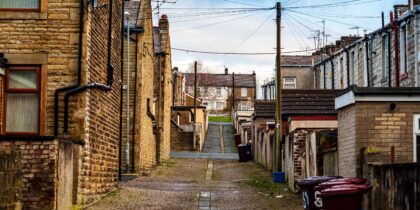The Government’s plans to reduce health disparities give it a chance to take action to tackle poverty, improve housing and give every child a better start in life, according to a policy paper published today by Centre for Mental Health.
Tackling mental health disparities identifies some of the evidence-based actions the Government could take in its white paper later this year to ‘level up’ health.
Tackling mental health disparities notes that mental health inequalities in England are deeply entrenched and harmful. The poorest children are four times more likely to have a mental health difficulty than the wealthiest. Black people are at four times higher risk of being sectioned than white people. And people with a mental illness have a 15-20 year shorter life expectancy than the rest of the population.
Tackling mental health disparities says that reducing poverty and income inequality has to be at the heart of any attempt to level up health. Poverty is toxic to mental health and taking people out of poverty has been demonstrated to improve mental as well as physical health. The Government can seek to reduce poverty by increasing benefit payments, by ensuring employers pay the Real Living Wage and by setting a new target to reduce child poverty.
Tackling mental health disparities identifies essential actions for the white paper including tackling racism, ensuring people have good homes to live in, improving working conditions and creating mentally healthy schools.
Tackling mental health disparities also calls for concerted action to close the health gap for people with a mental illness. It calls on the Government to set a target to reduce premature mortality among people with a mental illness, backed up with action to tackle the causes.
Centre for Mental Health chief executive Sarah Hughes said: “The Government has a chance now to level up health by taking effective steps to tackle the causes of health inequality. Tackling mental health disparities sets out ten evidence-based actions it could take that would make a real difference.
“Lifting someone out of poverty and ensuring they have a safe, warm place to live can dramatically improve their health. Funding early support hubs for young people needing help with their mental health can make a difference when it’s needed most. And in the longer term, tackling the climate crisis will help to reduce health inequalities for those most at risk from the mental health effects of flooding, heatwaves and wildfires.
“We hope the Government will act on this evidence and take steps that will reduce health disparities. The ten actions we have identified will go a long way to closing the gap and create a healthier future for all of us.”



